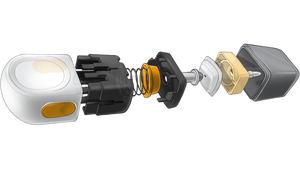Device tax could cost 165,000 jobs, according to medtech survey
The medical device excise tax has already cost approximately 33,000 jobs and ultimately could eliminate as many as 165,000 jobs, according to a new survey conducted by US medtech lobbying association AdvaMed.
February 19, 2014
The medical device excise tax has already cost approximately 33,000 jobs and ultimately could eliminate as many as 165,000 jobs, according to a new survey conducted by US medtech lobbying association AdvaMed.
Almost one-third of companies responding to the survey said they had reduced R&D spending as a result of the tax and 10% said they had relocated or expanded manufacturing outside the United States. Going forward, more than half of respondents said they would consider reducing employment if the device tax is not repealed and 50% indicated that they would offset the tax burden by reducing R&D initiatives.
The 2.3% excise tax on the revenue of medical device manufacturers is part of the Affordable Care Act and went into effect at the start of this year.
AdvaMed sent the survey to its entire member base at the end of 2013. Thirty-eight companies responded, accounting for approximately 40% of the domestic sales revenue of Advamed's member companies. Respondents were evenly divided between large and small companies, Advamed notes.
Although the tax affects all medical device companies selling products in the United States, many feel that it disproportionately punishes startups and small device companies, since the tax is calculated on revenue, not profits. The Stanford Biodesign Alumni Association Board recently released a policy position statement, based on a survey of nearly 100 medtech startups conducted by Silicon Valley Bank, that describes how the tax could stifle innovation.
"Suppose a venture-backed startup with 60 employees generates revenues of $10 million in a year," writes the board. "As a growing startup, they burn about $1 million a month and end the year with a loss of $2 million. To make up for this loss, the startup relies on venture capital with the belief that these losses will be paid back, with a reasonable return, once the products gain widespread adoption. With the medical device tax, this company will be responsible for $230,000 in taxes. Making up for this additional cost is unlikely to come from sales or marketing because money spent here directly impacts revenue. Operations and manufacturing budgets are not likely to be cut either because of the criticality of keeping product on the shelf. Research and development, because it is farthest away from directly generating revenue, may be the department most likely to make up for this shortfall, potentially leading to a two headcount reduction. In short, R&D is what will most likely get hurt with the medical device tax."
As opponents of the device tax consistently point out, there is bipartisan support for its repeal. However, President Obama has promised to veto a repeal of the device tax unless another acceptable source of revenue is found.
About the Author(s)
You May Also Like




